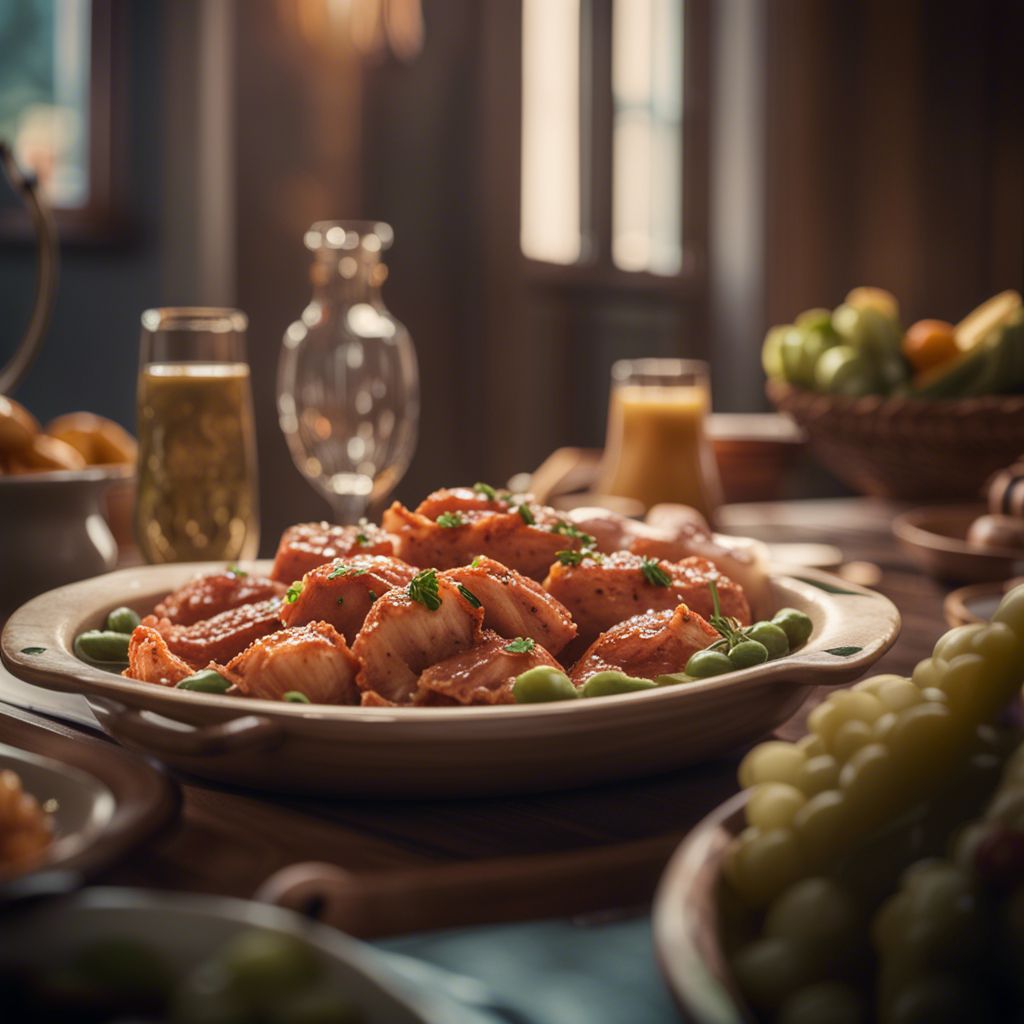
Cuisine
Croatian cuisine
Croatian cuisine is known for its fresh and simple flavors, often featuring seafood, grilled meats, and fresh vegetables. Popular dishes include crni rizot (black risotto made with squid ink), pasticada (a beef stew), and sarma (stuffed cabbage rolls). Croatian cuisine also features a variety of cheeses, such as sir iz mišine (a sheep's milk cheese) and paški sir (a cheese from the island of Pag). Bread is a staple of Croatian cuisine, with focaccia and other flatbreads being popular choices. Croatian desserts often feature fruit, such as figs and cherries.
Typical ingredients
Seafood (such as squid, octopus, sardines), Beef, Pork, Lamb, Onions, Garlic, Peppers, Tomatoes, Potatoes, Beans, Cabbage, Carrots, Eggplant, Zucchini, Cheese, Bread, Figs, Cherries
Presentation and garnishing
Croatian dishes are often served family-style, with large platters of meat and vegetables. Garnishes may include fresh herbs, lemon wedges, and olive oil. Focaccia and other flatbreads may be served with a side of olive oil or cheese.
Croatian cuisine is known for its fresh and simple flavors, and is often made with locally sourced ingredients. The country is also known for its wine, with many local varieties available.
More cuisines from this region...
Greek cuisine, Serbian cuisine, Montenegrin cuisine, Macedonian cuisine, Kosovan cuisine, Bosnian cuisine, Albanian cuisine, Aromanian cuisine
History
Croatian cuisine has a long history, dating back to the Roman Empire. The cuisine has been influenced by Italian, Austrian, and Hungarian cuisine, as well as Mediterranean influences. Croatian cuisine has also been shaped by the country's geography, with coastal regions favoring seafood dishes and inland regions featuring more meat-based dishes.
Cultural significance
Croatian cuisine is an important part of the country's cultural heritage, and is often served at family gatherings and celebrations. The cuisine is also popular in neighboring countries, such as Slovenia and Bosnia and Herzegovina. Wine is an important part of Croatian cuisine, with many local varieties available.
Health benefits and considerations
Croatian cuisine is generally high in protein and carbohydrates, and may be high in fat depending on the dish. Some traditional dishes may be high in sodium. Croatian cuisine also features a variety of vegetarian and vegan options, such as stuffed peppers and eggplant dishes.
Croatian cuisine dishes Browse all »

Artičoke s bižima
Artichokes with Breadcrumbs
Artichokes with peas is a traditional Croatian dish that is perfect for spring and summer. The dish is light, refreshing, and full of flavor.

Palenta s koprivom
Polenta with Nettle
Palenta s koprivom is a traditional Slovenian dish made from cornmeal and nettles. It is a hearty and nutritious dish that is often served as a main course.

Puntarska kiselica
Puntarska kiselica is a traditional Croatian dish made with sorrel and potatoes. It is a simple yet flavorful dish that is often served as a side or main course.

Bolski cviti
Bolski Cviti
Bolski cviti is a traditional Croatian pastry that is made with almonds, sugar, and egg whites. It is a sweet and delicate treat that is perfect for special occasions or as a gift.

Prigorska pogača
Prigorska pogaca
Prigorska pogača is a traditional Croatian bread that is typically served as an appetizer or snack. It is a savory bread that is perfect for dipping in olive oil or spreading...

Mađarica
Mađarica is a traditional Croatian cake that is made with layers of chocolate and vanilla sponge cake, and a rich chocolate filling. It is a popular dessert for special...

Varaždinski mlinci
Mlini Casserole
Varaždinski mlinci is a traditional Croatian dish made with thin, flat noodles and roasted meat. It is typically served as a main course.

Ličke police
Ličke police is a traditional Croatian dish made with pork and potatoes.
Croatian cuisine recipes Browse all »
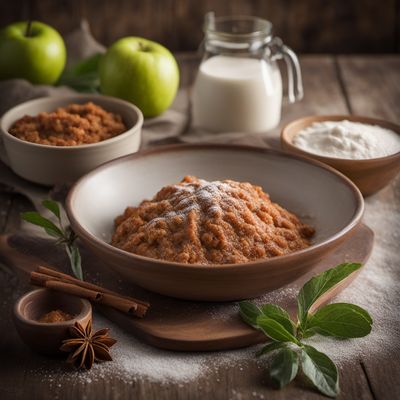
Jabučice iz Virovitice
Crispy Apple Delights

Međimurska Bidra - Savory Stuffed Pancakes
Savor the Delight of Međimurska Bidra - Croatian Stuffed Pancakes
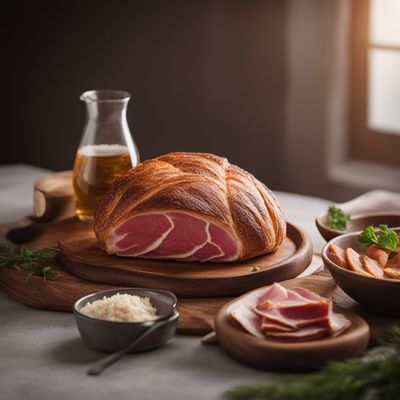
Croatian Ham in Bread
Savory Delight: Croatian Ham in a Crispy Bread Shell

Grilled Sardines with Mediterranean Flavors
Savor the Taste of the Adriatic: Grilled Sardines with a Mediterranean Twist

Lička juha (Croatian Mushroom Soup)
Savory Delight: A Taste of Croatia in a Bowl

Samoborski Kotlet with a Twist
Crispy Croatian Delight: Samoborski Kotlet Reinvented
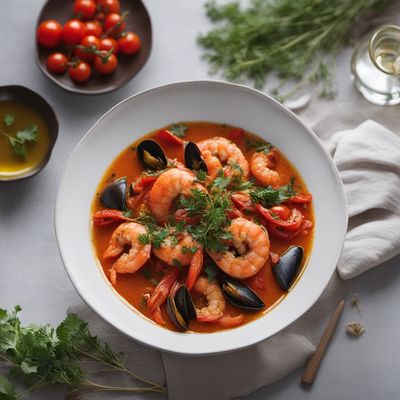
Croatian Seafood Stew
Mediterranean Delight: Croatian Seafood Stew
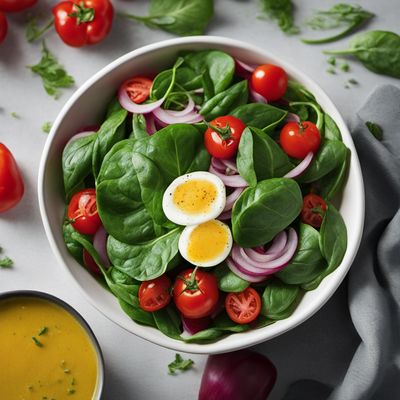
Croatian Spinach and Hard-Boiled Egg Salad
Savory Delight: Croatian Spinach and Egg Medley

Tunj na kaljski - Croatian-style Tuna
Mediterranean Delight: Grilled Tuna with Kaljski Sauce
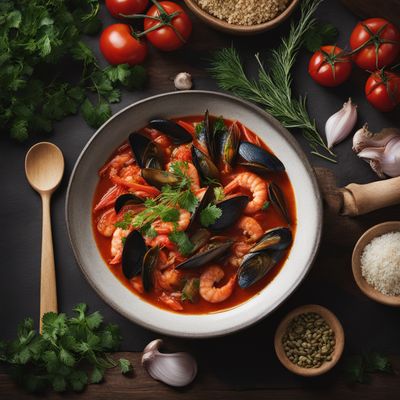
Croatian Fish Stew
Seafood Delight: Croatian Fish Stew
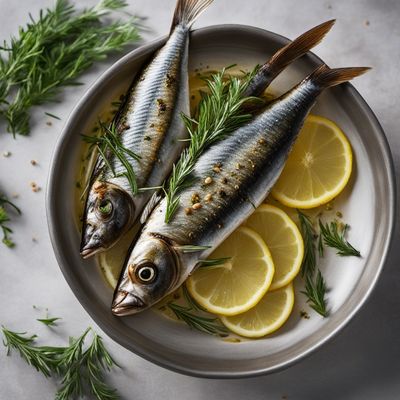
Grilled Sardines with Mediterranean Flavors
Savor the Taste of the Adriatic: Grilled Sardines with a Mediterranean Twist

Bribirski Prisnac - Croatian Cheese and Spinach Pie
Savory Delight: Croatian Cheese and Spinach Pie